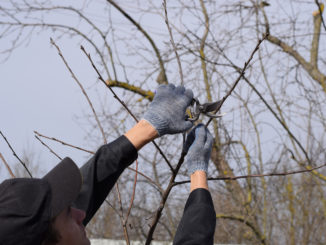
In response to the EU Commission proposals, the British government stated that more could have been done, particularly in terms of food security and biodiversity. They also raised budget concerns. As Westminster continues to reduce public spending, they argue the budget for farm subsidies needs to be cut more than the proposed figures emerging from Brussels.
British Environment Secretary Caroline Spelman said:
“While some of the Commission’s rhetoric is right, overall we’re disappointed and the proposals as they stand could actually take us backwards. Reform of the CAP should go further in order to deal with the twin challenges of international food security and protecting our wildlife and biodiversity.
“The UK will now be working to help the European Commission realise the ambition of a simpler CAP that provides real benefits for the environment and improves the competitiveness of the farming industry”.
New Shadow Food and Farming Minister Huw Irranca-Davies described the proposals as a missed opportunity, stating that “the rhetoric of radical reform has turned into a tired compromise, letting down both UK farmers and our natural environment.”
Friends of the Earth UK said the proposals would continue subsidising factory farming, and not do enough to change farming practices. The RSPB, one of the biggest recipients in Britain of farm subsidies, expressed fears that conservation will go backwards. Gareth Morgan, RSPB head of countryside conservation, said the reforms were a big let down for wildlife-friendly farmers. He also highlighted the lack of targeted support proposed for high nature value farmers and crofters in areas such as the Scottish Highlands and islands. Meanwhile, the Soil Association spoke in favour of the Commissioner’s strong focus on stimulating employment in farming and on greening the CAP. A spokeswoman said the EU Audit Commission recognised the clear scientific evidence of the environmental benefits of organic farming.
The National Farmers’ Union (NFU) and the County Land and Business Association (CLA), who were always opposed to each other over the reforms, released a joint statement saying few of the proposals would help meet the Commission’s objective of ‘smart, sustainable and inclusive growth for European agriculture. The Farmers Union of Wales said some farmers could lose 40% of their subsides, whilst Ulsters Farm Union said the issue of food security had been ignored. Nigel Miller, president of the National Farmers Union of Scotland, expressed surprise at the suggestion that 7 per cent of land should be taken out of production and put it into environmental projects at a time when increased food production is a worldwide issue, saying that Scotland had little enough top quality land without taking a percentage of it out of food production.




